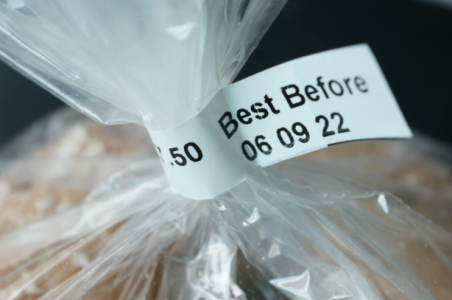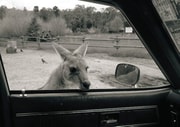Experts want 'best before' dates removed from fresh produce
By
VanessaC
- Replies 35
Australians waste staggering amounts of perfectly good food each year, and experts say that 'best before' labels are partly to blame.
Many consumers, guided by these dates, discard produce that are still perfectly edible, leading to unnecessary waste.
Now, experts are advocating for removing these labels on fresh fruit and vegetables to reduce food waste.
Australia is grappling with a food waste crisis, with about 7.6 million tonnes of food ending up in the rubbish yearly.
To put that into perspective, that's enough to fill Melbourne Cricket Ground 10 times over!
The average Australian family also reportedly discards $2,500 worth of food annually, amounting to a staggering $36 billion nationwide.
Steven Lapidge, Chief Executive of advocacy group End Food Waste, points out the issue with 'best before' dates on packaged produce.
'As soon as someone sees a date…they just see a date and they say, “Well, it's past that date or it's near that, we throw it out,”' he explained.
'There's a lot of unnecessary food waste, just because there's a date on there. The best test is your own test.'
A recent senate inquiry released the Australian Food Story: Feeding the Nation and Beyond report, recommending a review of 'best before' and 'use-by' dates on food.
The report suggested using QR codes on products to provide relevant information and educate consumers.
It also advocated for a National Food Plan to eliminate food waste, following the UK's lead in removing 'best before' dates on packaged fruit and vegetables last year.
However, the dates would only be scrapped where there are no discernable food safety issues. For example, pre-cut and mixed salad bags would still carry a 'use-by' date.
The proposed change isn't just about reducing waste; it could also promote healthier eating habits.
'When we do waste fruit and veggies, we tend to buy less and that's a bit of a vicious cycle, because that's what we need to be eating more of and not less of,' Lapidge claimed.
Food waste isn't just a financial issue; it's an environmental one, too. Approximately 10 per cent of greenhouse gas emissions come from landfill rubbish, contributing to climate change.
Food Standards Australia New Zealand (FSANZ) is reportedly focused on working with the Cooperative Research Centre on combating food waste, and has not announced any plans of reviewing 'best before' or 'use-by' dates.
'The Australia New Zealand Food Standards Code generally requires packaged food to display date marks on food (e.g. best before and use-by dates) with food suppliers being responsible for deciding if a use-by or best before date is used,' FSANZ said in a statement.
'However, packaged fruit and vegetables are not required to display a date mark as long as the nature or quality of the food is not obscured by the packaging.'
'FSANZ recognises education and awareness of date marking can assist in reducing food waste.'
You can learn more about 'best before' or 'use-by' dates here.
Tips on How to Prevent Food Waste
Lapidge suggested preparing 'just enough food' rather than cooking 'just in case' someone drops by.
'A lot of people just always prepare a bit of extra food just in case someone pops in—that's the bit that often goes to waste,' he said.
'At Christmas, it's so tempting to say, “Hey, I'll have one of everything”, to try and impress the family and friends and so on but it does lead to a pretty big increase of food waste.'
'A lot of cultures associate having extra food or excess food with love as well.'
He also recommended storing food properly to extend its shelf life.
For instance, apples last six times longer in the fridge than in a fruit bowl.
Other tips include eating the oldest leftovers first, planning meals, and shopping with a list.
Want more tips? Check out this article!

What are your thoughts on this issue, members? Have you ever thrown away food based on its 'best before' date, only to realise it was still good to eat? Share your experiences in the comments below.
Many consumers, guided by these dates, discard produce that are still perfectly edible, leading to unnecessary waste.
Now, experts are advocating for removing these labels on fresh fruit and vegetables to reduce food waste.
Australia is grappling with a food waste crisis, with about 7.6 million tonnes of food ending up in the rubbish yearly.
To put that into perspective, that's enough to fill Melbourne Cricket Ground 10 times over!
The average Australian family also reportedly discards $2,500 worth of food annually, amounting to a staggering $36 billion nationwide.
Steven Lapidge, Chief Executive of advocacy group End Food Waste, points out the issue with 'best before' dates on packaged produce.
'As soon as someone sees a date…they just see a date and they say, “Well, it's past that date or it's near that, we throw it out,”' he explained.
'There's a lot of unnecessary food waste, just because there's a date on there. The best test is your own test.'
A recent senate inquiry released the Australian Food Story: Feeding the Nation and Beyond report, recommending a review of 'best before' and 'use-by' dates on food.
The report suggested using QR codes on products to provide relevant information and educate consumers.
It also advocated for a National Food Plan to eliminate food waste, following the UK's lead in removing 'best before' dates on packaged fruit and vegetables last year.
However, the dates would only be scrapped where there are no discernable food safety issues. For example, pre-cut and mixed salad bags would still carry a 'use-by' date.
The proposed change isn't just about reducing waste; it could also promote healthier eating habits.
'When we do waste fruit and veggies, we tend to buy less and that's a bit of a vicious cycle, because that's what we need to be eating more of and not less of,' Lapidge claimed.
Food waste isn't just a financial issue; it's an environmental one, too. Approximately 10 per cent of greenhouse gas emissions come from landfill rubbish, contributing to climate change.
Food Standards Australia New Zealand (FSANZ) is reportedly focused on working with the Cooperative Research Centre on combating food waste, and has not announced any plans of reviewing 'best before' or 'use-by' dates.
'The Australia New Zealand Food Standards Code generally requires packaged food to display date marks on food (e.g. best before and use-by dates) with food suppliers being responsible for deciding if a use-by or best before date is used,' FSANZ said in a statement.
'However, packaged fruit and vegetables are not required to display a date mark as long as the nature or quality of the food is not obscured by the packaging.'
'FSANZ recognises education and awareness of date marking can assist in reducing food waste.'
You can learn more about 'best before' or 'use-by' dates here.
Tips on How to Prevent Food Waste
Lapidge suggested preparing 'just enough food' rather than cooking 'just in case' someone drops by.
'A lot of people just always prepare a bit of extra food just in case someone pops in—that's the bit that often goes to waste,' he said.
'At Christmas, it's so tempting to say, “Hey, I'll have one of everything”, to try and impress the family and friends and so on but it does lead to a pretty big increase of food waste.'
'A lot of cultures associate having extra food or excess food with love as well.'
He also recommended storing food properly to extend its shelf life.
For instance, apples last six times longer in the fridge than in a fruit bowl.
Other tips include eating the oldest leftovers first, planning meals, and shopping with a list.
Want more tips? Check out this article!
Key Takeaways
- Experts are advocating for the removal of best before and use-by dates on packaged produce to reduce food waste.
- Australians waste about 7.6 million tonnes of food or $36 billion worth annually, partly due to people discarding produce based on estimated dates rather than the actual quality of the food.
- The Australian Food Story report recommended that the government and food industry review these dates, suggested using QR codes to provide consumers with relevant information, and encouraged the creation of a National Food Plan to eliminate food waste.
- End Food Waste Chief Executive Steven Lapidge highlighted that food waste contributes to climate change and discourages healthy eating as people tend to buy less fresh produce when they waste it.








